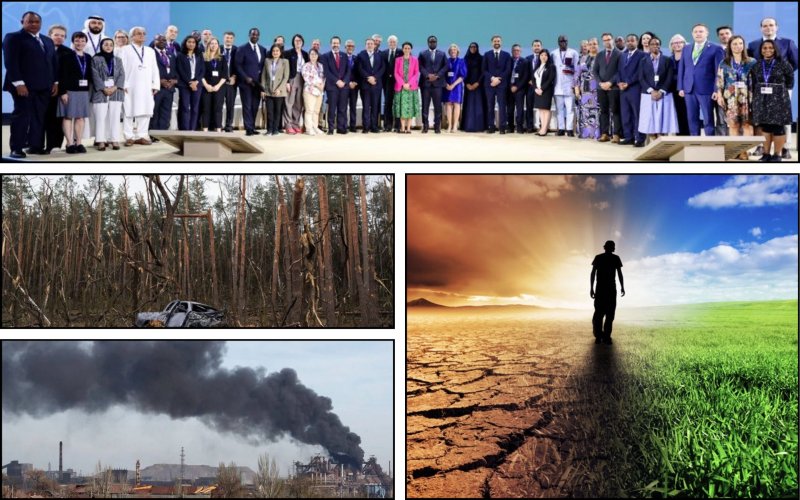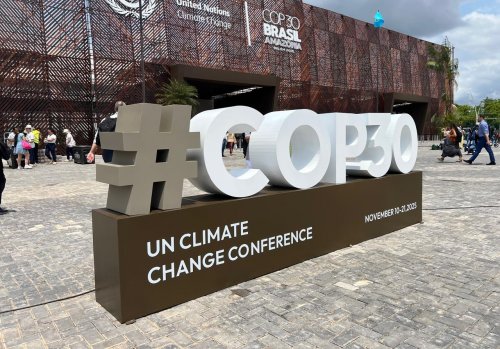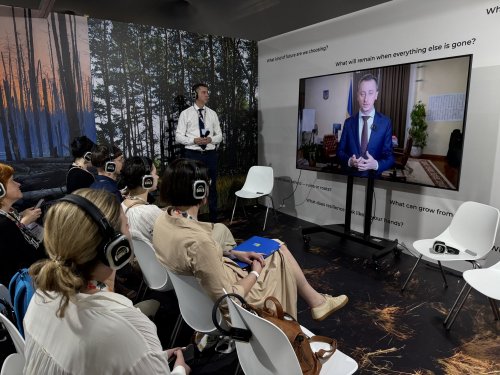The participants of the COP28 climate summit, which was to last from November 30 to December 12, failed to reach an agreement on the phase-out of fossil fuels in the final conference agreement and the event continued. However, the summit adopted three key climate declarations, to which Ukraine joined.
EcoPolitic has prepared for its readers the main achievements of the Ukrainian delegation at the conference.
The Climate Summit brought together more than 70,000 delegates from 198 countries, including world leaders, heads of state and government, representatives of the environmental community and business. They agreed to work on:
- tripling the use of nuclear energy by 2050;
- tripling of renewable energy capacity by 2030;
- doubling the annual global rate of energy efficiency improvement from about 2% to over 4% by 2030.
In addition, on the first day of the summit, COP28 participants made a historic decision to create a fund to compensate climate change losses and damages to developing countries. This fund can also provide financing for green recovery projects in Ukraine.
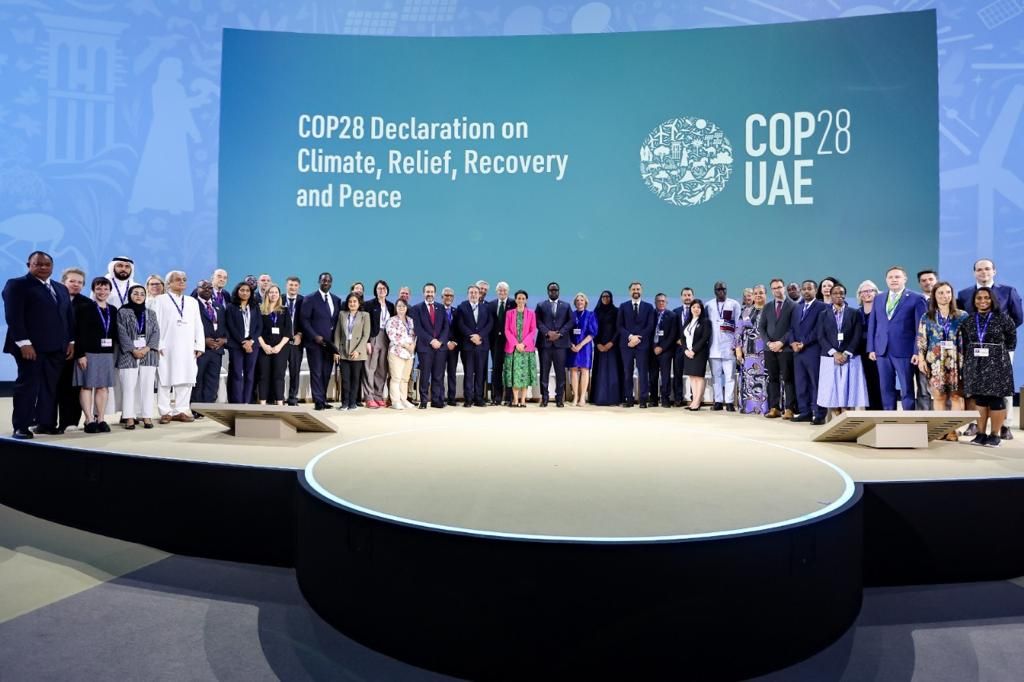
Ukraine's position at COP28
About 100 delegates from various ministries and public organizations represented Ukraine at the conference. The country presented its pavilion for the second time, which is dedicated to:
- block "Kahovka" – the consequences of Russians undermining the dam of the Kakhovka HPP, in particular the installation "Roof", which is dedicated to the tragedy of flooding;
- "Consequences" – damage from the war;
- "Restoration" – reconstruction of the destroyed.
Successes in the field of energy
At the conference, the Minister of Energy of Ukraine Herman Galushchenko presented a report on the decarbonization of the energy sector by 2050, developed within the framework of the US Net Zero World initiative together with US national laboratories, scientists and experts.
He said that the US will continue to support Ukraine in the restoration of energy facilities and the development of the necessary base for the deployment of small modular reactors. In addition, the Ministry of Energy agreed with the relevant ministry of Italy on cooperation in the field of energy transition and renewable energy sources.
Among the key events of the conference for Ukraine, the Ministry of Energy named the following:
- the EU noted the progress of European integration reforms in the energy sector of Ukraine, aimed at the integration of electricity markets. This became the key topic of the meeting of the Deputy Minister of Energy Svitlana Grynchuk with the Director General of the Directorate General for Energy of the European Commission Ditte Yul Jorgensen;
- progress in the preparation of the National Energy and Climate Plan (NECP) until 2030 was noted;
- new participants joined the Clean Energy Partnership initiative between Ukraine and the G7+ countries, namely the International Finance Corporation (IFC), the Ukrainian Energy Initiative of the UN Global Compact, IRENA;
- international business is interested in investments to attract foreign technologies for the development of hydrogen production in Ukraine, deployment of solar and wind generation.
"Despite the war and the enemy's targeted attacks on our energy sector, Ukraine does not stop in the fight against climate change and continues to work to achieve the goals of decarbonization of the energy sector. We thank international partners for their support," the press service of the Ministry of Energy emphasized.
Also, DTEK and the Danish wind giant Vestas signed a Memorandum on the construction of the second phase of the largest wind power plant in Eastern Europe Tiligul WPP. This will increase its capacity by 384 MW, i.e. up to 500 MW
The impact of war on the environment and climate
The Ukrainian delegation also told the world community about the devastating impact of Russian aggression on the environment and international climate efforts. After all, as a result of a full-scale war, 150 million tons of CO2-equivalent entered the atmosphere in 18 months. This amount of greenhouse gases is equivalent to the annual emissions of Belgium. Climate damage that Russia must compensate is estimated at $11 billion.
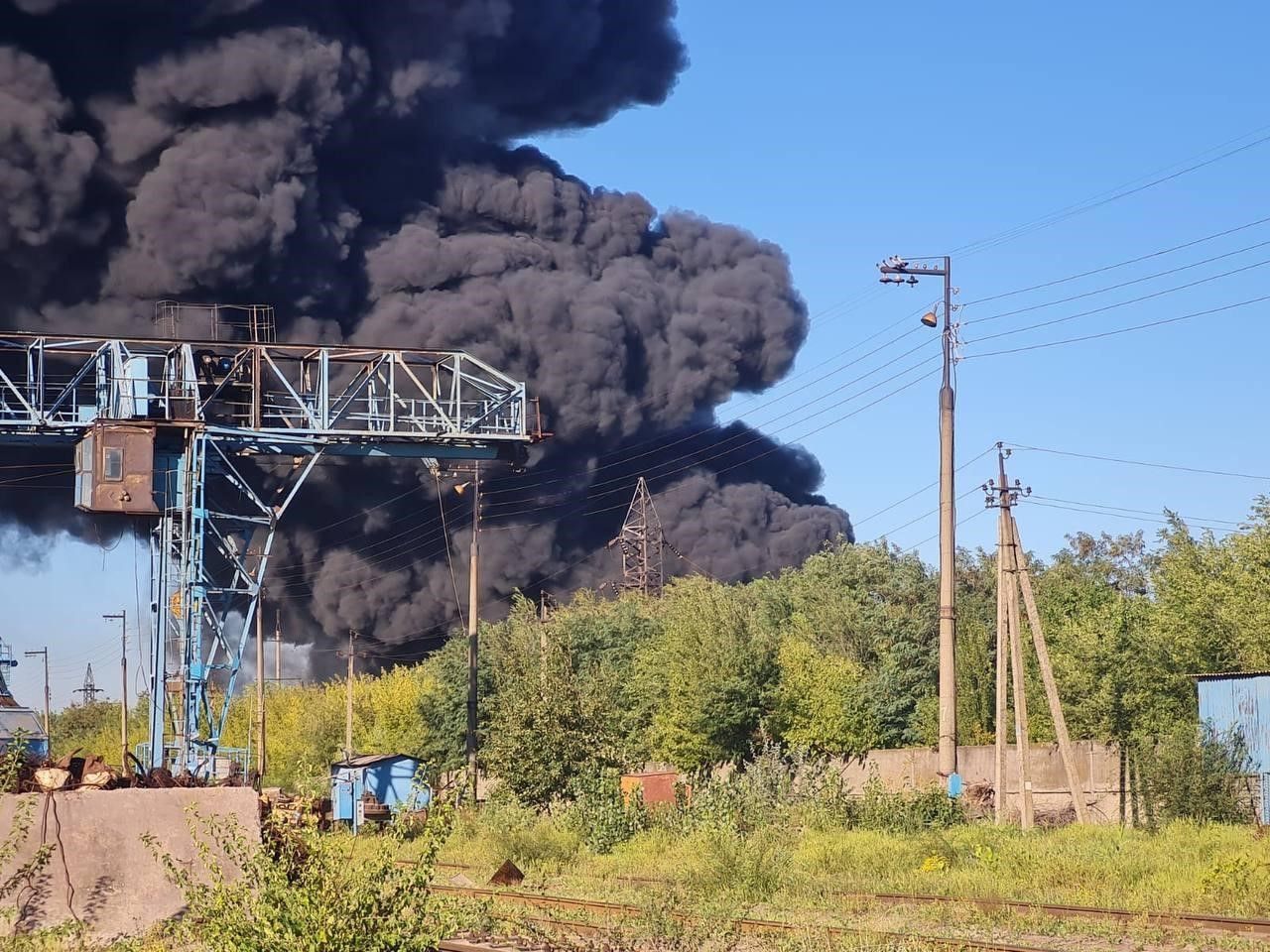
In addition, the Minister of Environmental Protection and Natural Resources, Ruslan Strelets, said that Ukraine is initiating the introduction of the mechanism of Aggressor refunds (aggressor pays) in order to force Russia to compensate for the damage caused to the environment and climate. After all, the world must support the prosecution of those responsible for bringing the planet closer to climate catastrophe. He also presented the Net Zero strategy until 2050.
"Despite everything, Ukraine continues to adhere to international climate obligations. Keeping a clear course on decarbonization, we have created the Decarbonization Fund, are implementing the Ukrainian National Decarbonization Platform (UANDP), and are opening regional offices for decarbonization and energy efficiency," she emphasized Head of the State Agency for Energy Efficiency and Energy Saving, Hanna Zamazeyeva.
Also, the Ukrainian delegation received a Regional Declaration from the youth of Eastern Europe. This document unites young people from different countries in cooperation in the following directions:
- inclusion of youth in climate protection processes;
- sustainable agriculture and food security;
- transition to renewable energy;
- post-war recovery and resilience;
- climate peace and security.
In addition, Ukraine joined the Climate Club, that is, an international platform for the decarbonization of industry and the activation of collective actions in the world. And also enlisted the support of Great Britain for the restoration of forests and protected objects destroyed and damaged as a result of the war.
Earlier, EcoPolitic reported on key events of the first week of the COP28 climate conference.

